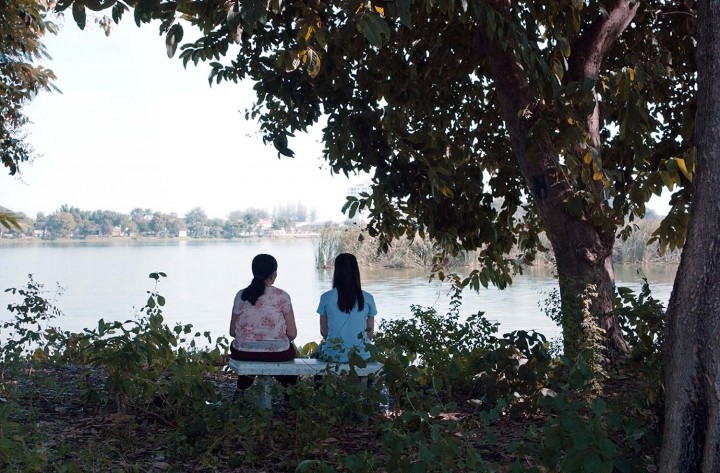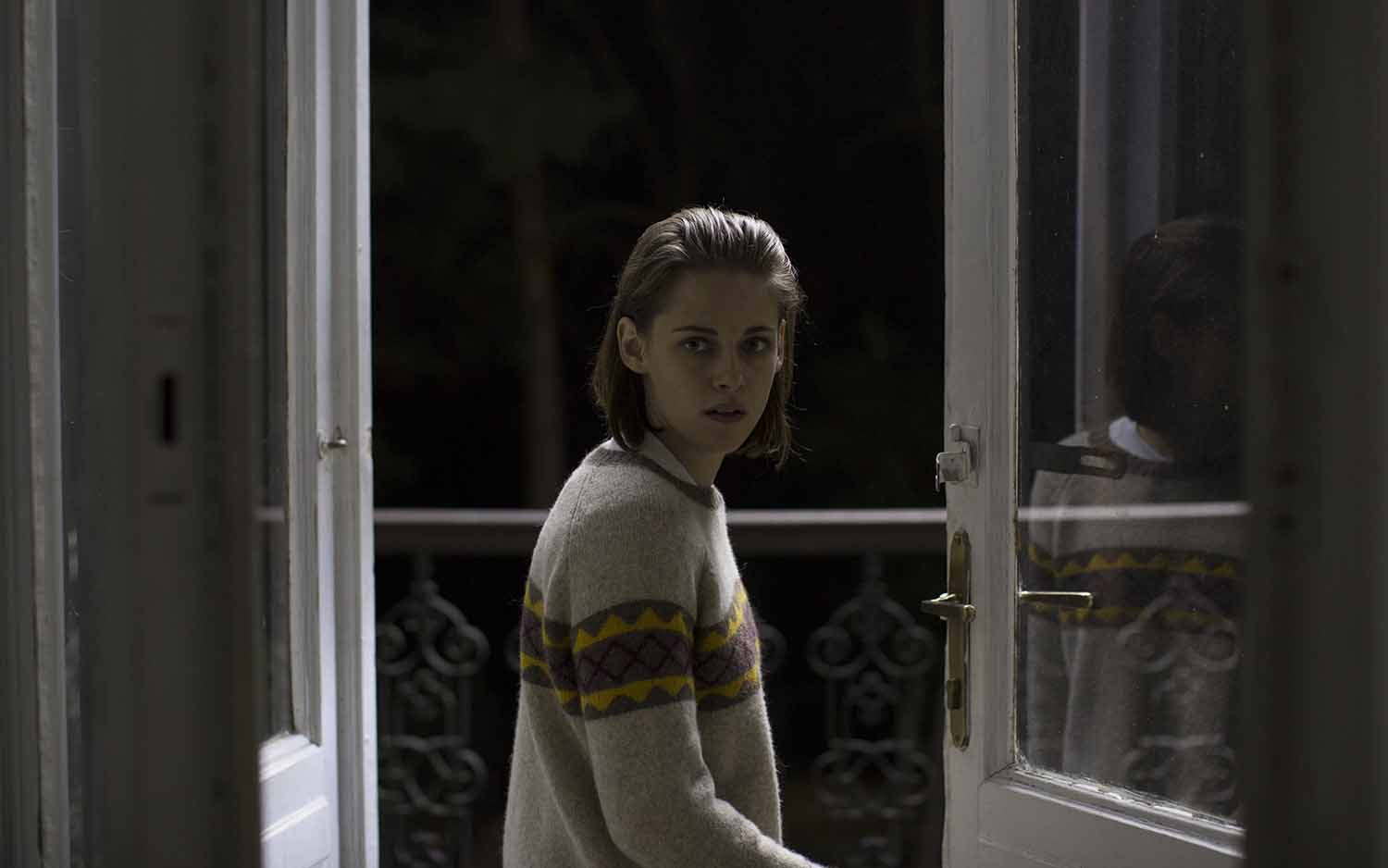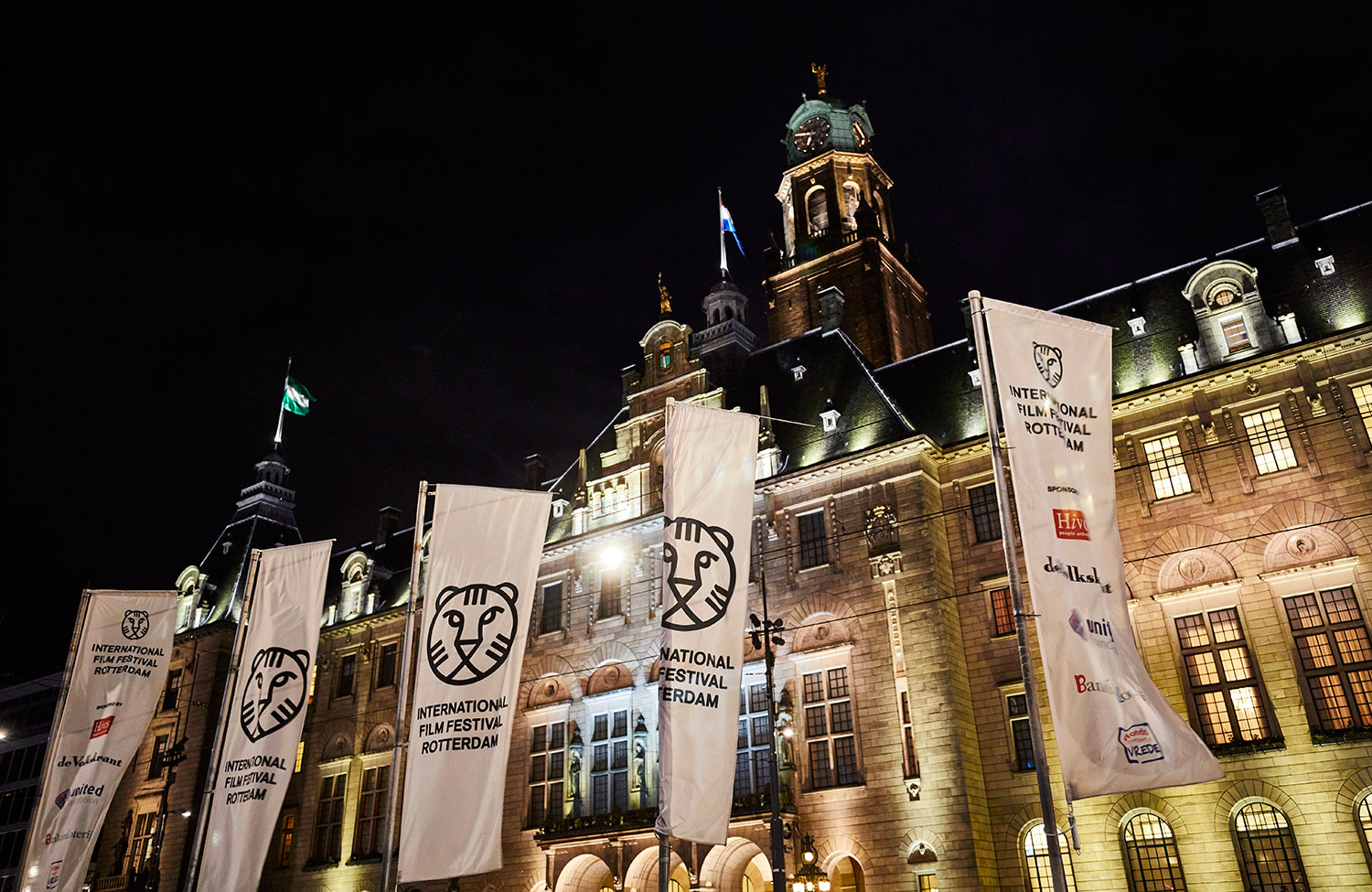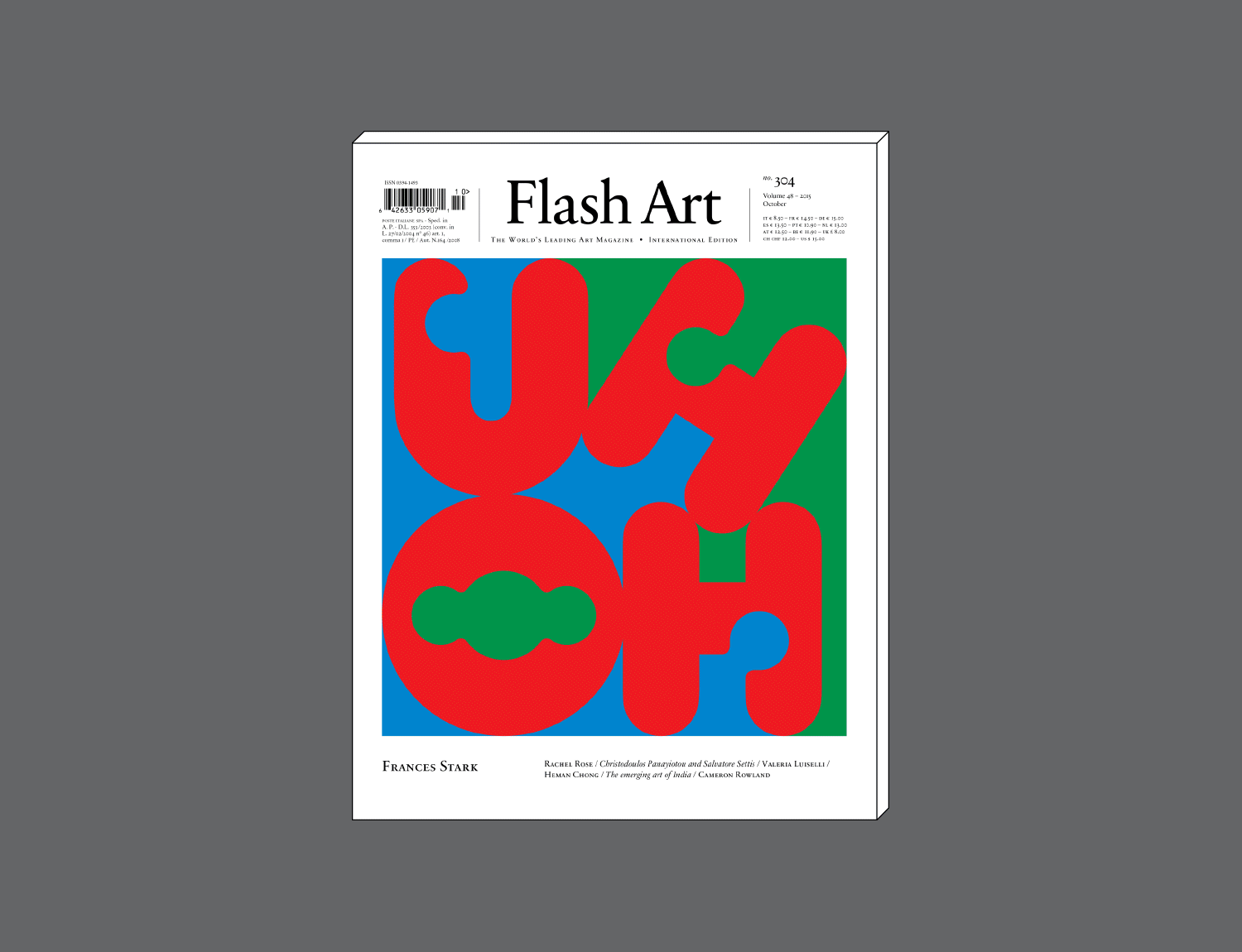Nose down, night buses carry them through Toronto, zero dark whomever with a press pass. Across the street from a government housing project I check into my Airbnb; I’m asleep before I can even check whether Putlocker works beyond the American border.
Nine a.m. at “the Scotiabank”. I’m brushing my teeth before my first press screening, Apichatpong Weerasethakul’s Cemetery of Splendour, his first since Uncle Boonmee Who Can Recall His Past Lives. Anywhere else in North America, movies wake up around 11 am, the festival life is unreal to them, fleshless. The movies of TIFF need more than a pin-prick to discern their dreaming, revolving in the drowsy orbit of summer’s wake; and then early autumn, the prelude to awards season, an undertow flexes. In the multiplex bathroom I raise the toothbrush to my tender gums and think, If I see blood, I share it with Boonmee.
Cemetery of Splendour is an immediate highlight, a gracious host that leaves all its rooms unlocked while it runs a bath somewhere out of sight. It serves as a festival-city experience in microcosm: rangily spiritual, smiling weakly on an empty stomach, reassuring us that the great mysteries are soluble.
The top films at the box office over the festival weekend are The Visit and The Perfect Guy, both breakout hits. Toronto teems beside them, keeping its own shoptalk sequestered to the Ritz. There’s Paolo Sorrentino’s Youth, whose maximalist art trash suggests Matthew Barney visiting the Grand Budapest Hotel; Joachim Trier’s Louder than Bombs, a sharp reboot of mid-2000s preciousness; Lace Crater and The Witch, two isotopes of slavishly authentic Brooklyn horror that, in the post-video wasteland of 2015, we can only imagine kids trying to sneak out of Blockbuster on sleepover night; Gaspar Noé’s Love, whose protagonists seek connection and find double penetration.
A friend in New York asks me what I think of the Oscar contenders: “Do you feel like you’ve seen Best Picture?” he clarifies. I consider the rolodex of awards movies at this festival, the known-unknowns. Spotlight has the righteousness; Room, the intimacy; 45 Years has Charlotte Rampling and Tom Courtenay, both great, and an attention to bourgeois texture that rivals James Salter; The Martian finds ecstasy in the labor of nerds. The Danish Girl is impressive, too: Tom Hooper finally gets a story with two long-suffering wives.
But Sicario is the best of them, a convoy of fixed personalities trucking through liminal horrors along the US/Mexico border. Afterward, I glance around Toronto’s festival street and feel dust in the breeze. A giant Netflix logo is projected against a brick wall like the Bat-signal, a distress call whose damsel is anyone with a monthly subscription.
At a bar in Kensington Market, I watch clips from Freeheld, another supposed Oscar contender in which Julianne Moore portrays a famous lesbian activist and wears a blonde wig. A drag queen sashays in front of the screen, stoic and wearing a blonde wig, too. I wonder whether red carpet at the Oscars gets cleaned every year before they roll it back out.
In the second season of True Detective, a prostitute stares at Rachel McAdams and grimly tells her: “Everything is fucking.” But they forgot the second part: everything is fucking and everything is sleeping. Similarly, TIFF rafts along between brutality and peace, the demands of a far-off desert industry overlaid with the city’s expansive pleasantness: the pin-quiet subway cars, the walkability and no one jaywalking; the casually diverse neighborhoods and their unexpected silences.
I dump my 3-D glasses in the bucket outside The Martian and float to the AGO, where Apichatpong is showing an audience screengrabs from a recent bedtime Skype session with his boyfriend. His installation Fireworks (Archive) is playing in a room nearby; inside it smells like piped-in eucalyptus, but the sound of fireworks detonating pierces the scent. At the press conference for Room, seven-year-old actor Jacob Tremblay sheepishly says that he likes being at this festival because it reminds him of Disneyland. “But there are no rides,” co-star Brie Larson corrects him. He shrugs: “There are a lot of people.”
Seated at an izakaya around the corner from the Ryerson, my friend gestures across the street to a vacant lot: “That’s where my condo will be,” she says. “The thirty-second floor. But it won’t be built until 2018.” 2018, the year of the Jurassic World sequel, Godzilla 2, the final Fifty Shades. It’s just been announced that Sicario will get a sequel from Lionsgate. Will it play here, too?
That evening I mill around the Princess of Wales auditorium before Jia Zhang-ke’s Mountains May Depart. The crowd is largely twenty-something Chinese fans; they convene from everywhere and form an endless line that snakes beyond coffee shops and Irish pubs, beyond the billboards for Kinky Boots the musical. Inside Jia appears onstage and his reception is Taylor Swiftian, cheering from the nosebleeds at the slightest mention of hometown Fenyang.
His movie, the best of the festival, unfolds in three discrete parts: 1999, 2014 and 2025, the year my friend’s condo turns seven. The final segment is the key: Jia’s self-acknowledged nod to youth culture, it experimentally relocates us from mainland China to the gold coast of Australia, dropping the mic on any critic’s attempt to petrify him within the Eurozone canon. Deliberately tasteless and full of wet life, it’s the craziest cinema this side of Furious Seven.
Seven again: day seven, my last, writing postcards in the lobby of the Chelsea Hotel. I spent a few weekends at this hotel as a kid. Mom got tickets for The Phantom of the Opera; I remember it was at the Princess of Wales then, too, and that I had been in almost the same seat as I was for Mountains May Depart, twenty years removed.
In Toronto people speak of time as circular, the annual Main Slates and their open bars gone blurry, unforming, now visible. The festival and its Festival People, marching route-step with the foreign legion of auteurs, alternately ancient and larval; everywhere Time, and the denial of it. Sitting in a lobby I think that some things do go away, and stay gone, at least relative to one lifetime. The best that I’ve seen here — Mountains, Cemetery of Splendour, 45 Years — might agree.




